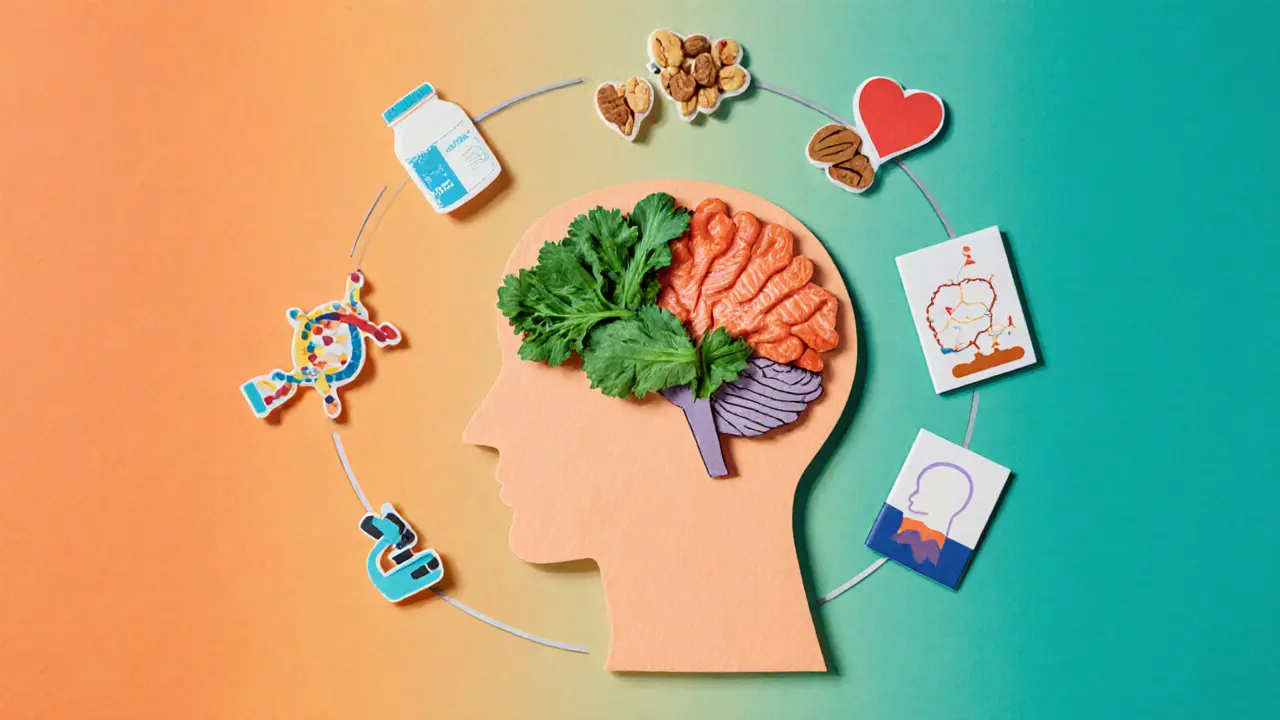Strava a deprese – praktický průvodce výživou a duševním zdravím
When we talk about Strava a deprese, vztah mezi tím, co jíme, a tím, jak se cítíme, je podpořen řadou studií. Also known as výživa a duševní zdraví, it ukazuje, že změna stravovacích návyků může zmírnit příznaky deprese a posílit účinek psychoterapie. The phenomenon deprese, chronický stav nízké nálady, únavy a ztráty motivace often co‑exists with nutrient deficiencies. Meanwhile, strava, denní souhrn potravin a nápojů, které konzumujeme supplies the building blocks for neurotransmitters that regulate mood. Research shows that omega‑3 mastné kyseliny, esenciální tuky nacházející se v rybách a lněném semínku boost serotonin production, while vitamín D, sluneční vitamín, který ovlivňuje imunitu i náladu correlates with lower risk of depressive episodes. In short, strava a deprese encompasses nutrition‑based interventions that complement traditional therapies, requires awareness of micronutrient status, and influences the success of cognitive‑behavioral approaches.
Why does this matter for anyone dealing with low mood? First, the brain needs glucose, amino acids and fatty acids to synthesize dopamine, serotonin and norepinephrine – chemicals that shape how we feel. A diet rich in whole grains, lean proteins, colorful vegetables and omega‑3 sources supplies these precursors and reduces inflammation, a known contributor to depressive symptoms. Second, deficiencies in B‑vitamins, iron, magnesium or vitamin D often manifest as fatigue, irritability or cognitive fog, which can be mistaken for pure psychological issues. Addressing these gaps can make psychotherapy sessions more productive, because the client arrives with higher energy and better concentration. Finally, the act of planning meals and cooking can serve as a behavioral activation technique, a core component of many therapeutic protocols, helping break the inertia that depression creates.
Co můžete očekávat v našem výběru článků
Below you will find a curated collection of articles that explore the link between nutrition and mental health, present evidence‑based dietary recommendations, and show how specific therapies – from ACT to arteterapie – can be combined with nutritional strategies. Whether you’re looking for practical meal ideas, want to understand the science behind omega‑3, or need guidance on integrating diet changes into your therapeutic plan, the posts below offer clear, actionable information.
Výživa a duševní zdraví - jak jídlo formuje psychiku a energii
- Zikmund Hrouda
- zář, 1 2025
Zjistěte, jak výživa ovlivňuje psychiku, energii a duševní zdraví. Praktické tipy, klíčové živiny a srovnání stravovacích modelů pomohou zlepšit náladu i soustředění.
Dozvědět se více